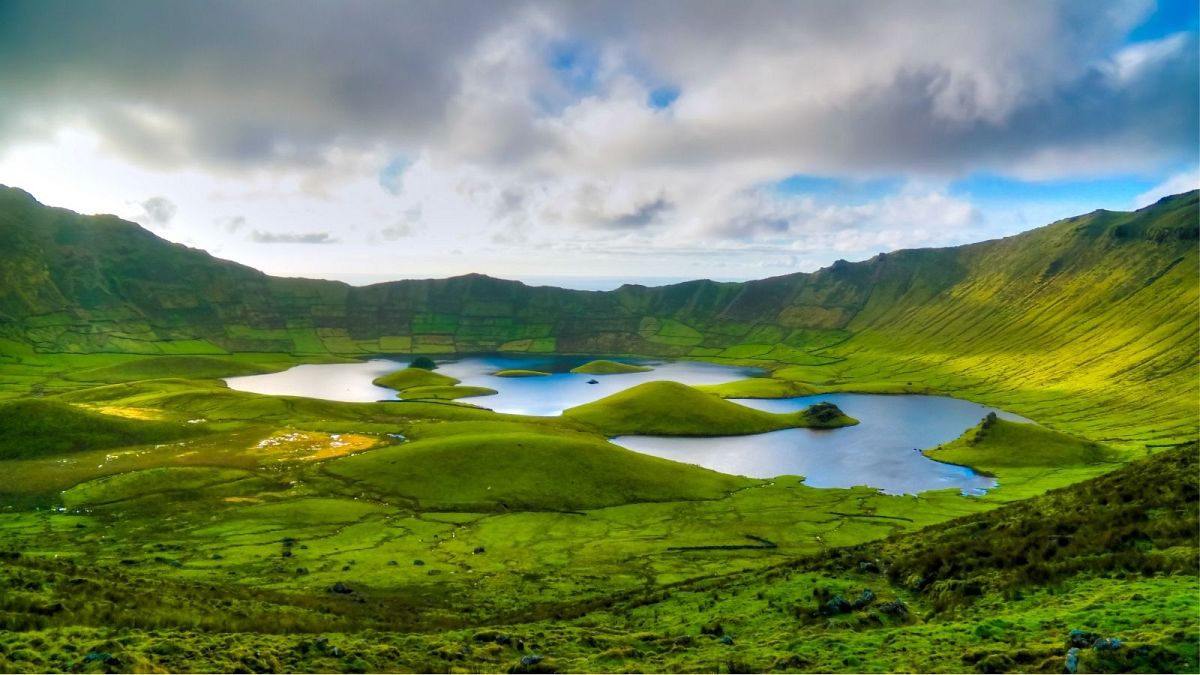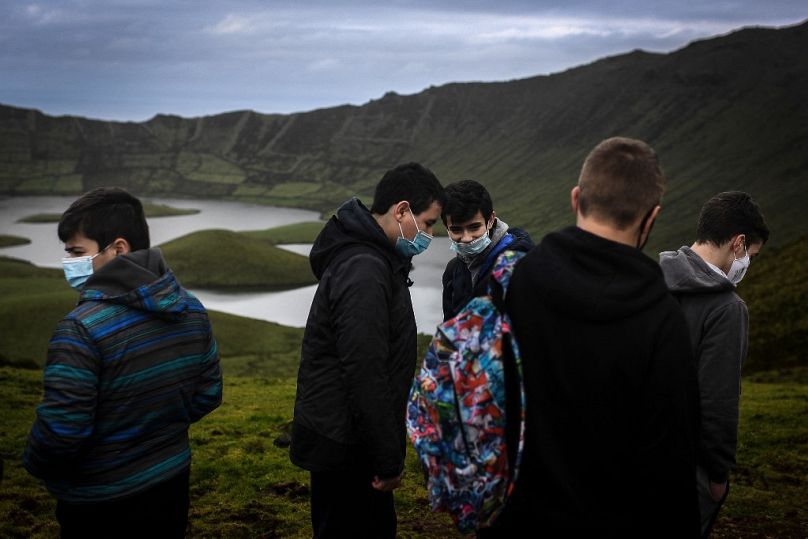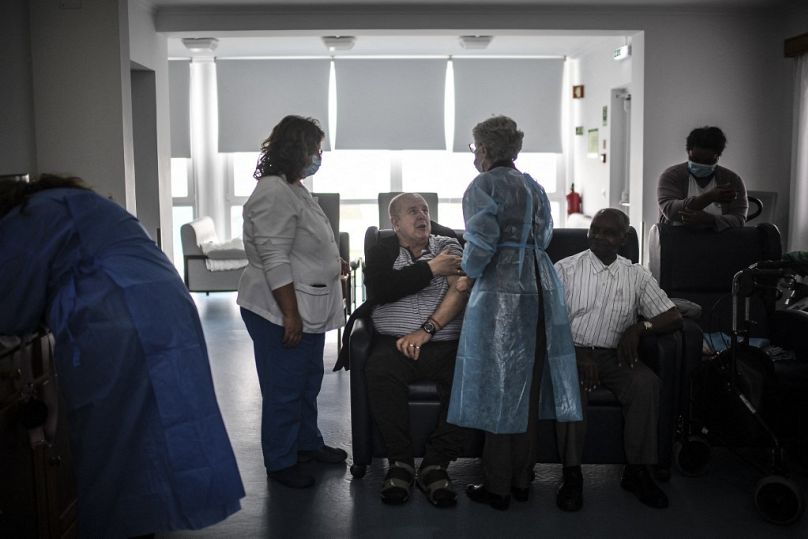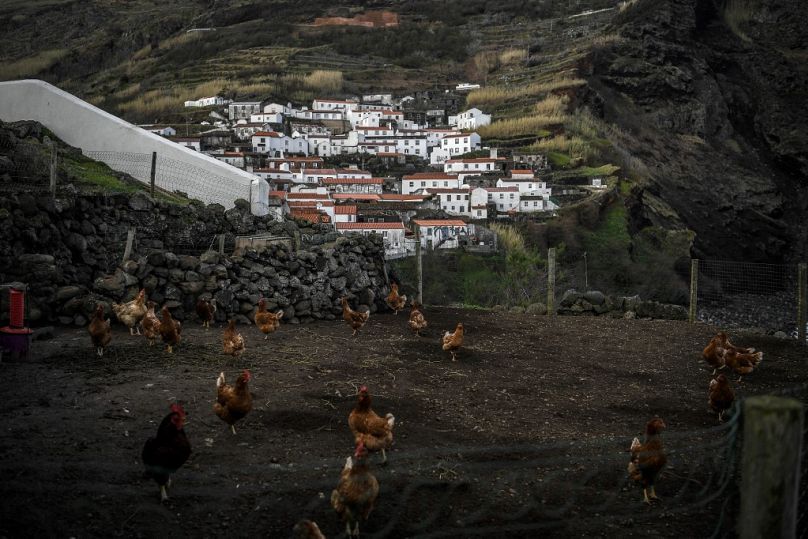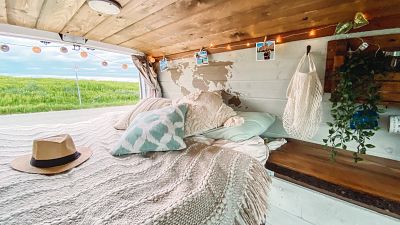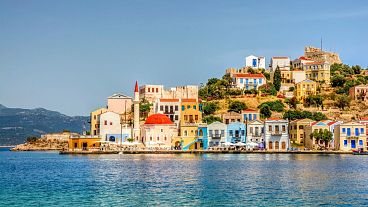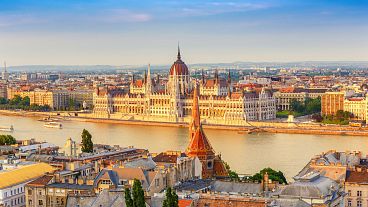Life goes on as usual for the island's 400 residents. Only masks and the almost total absence of tourism signal a different time.
Life on Corvo has practically returned to normal now that almost the entire 400-strong population of the smallest island in the Azores have been voluntarily vaccinated.
While the rest of the world struggles with the coronavirus pandemic, residents of the Portuguese island can meet in cafés, bars and restaurants.
Schools are also open and masks are not required to be worn outdoors.
On Saturday as people lined up at a sports complex for their second Pfizer dose, the islands only doctor rejoiced:
"We're already living a life that's very close to normal," beamed Antonio Salgado, checking names off his list. "And now it will be even more so!"
Battered by North Atlantic weather and sometimes starved of vital supplies, Corvo's remoteness is usually a disadvantage, but now it's a crucial asset in the fight against the coronavirus pandemic.
The 62-year-old physician arrived on Corvo less than a year ago but he is already accustomed to occasional shortages of fruit and fuel -- and he has learnt to make homemade yoghurt.
Located hundreds of kilometres away from the European mainland, the island escaped almost unscathed from the pandemic.
"Life in Corvo is quiet. We live well. There is no stress, stress doesn't exist here," says tour guide Fernando Câmara.
But with no tourists on the island, Câmara has little work these days. Instead, he takes high school students on field trips to the crater of the volcano that dominates the island.
"At this moment, Corvo is heaven. It's a unique place in the world," says Portuguese teacher, Carla Santos.
"We have had only one case of Covid on the island, which came from outside, from the mainland, and it was detected. We have continued to live normally here while following the rules issued by the Ministry of Health".
Portugal decided to fully vaccinate the island without moving through priority groups.
Local health official Clelio Meneses explained that the number of jabs needed to immunise Corvo would not affect rollouts elsewhere in the Azores.
"The only responsible thing to do was to vaccinate the whole population in one go to create an immunised territory," he said.
With just one ventilator on the island and no hospital beds at all, an outbreak of COVID-19 could have been devastating.
"We were very afraid that someone would come and contaminate all of us, like off a boat," said Goreti Melo, one of the island's two nurses.
"The spread would've been disastrous and very rapid," said the mayor of Corvo, Jose Manuel Silva, who recalled that some of his constituents wanted the island to be closed off.
"We only have one bakery so inevitably we all go to the same places".
Mainland Portugal has battled one of the world's most persistent outbreaks, imposing strict confinement measures as more than 16,000 people have died from more than 800,000 infections.
But on Corvo, there has been just a single Covid case, a local who ventured to the continent for the Christmas holidays.
Like the rest of Portugal, vaccination in Corvo is voluntary, but the uptake is almost total.
"The people of Corvo have experienced the absence of a pandemic on the island as a kind of compensation for their isolation, hard life and other problems," says Salgado.
As life goes on, as usual for people on the 17-square-kilometre island, only the masks and the almost total absence of tourism signal a different time.
However, the island has few sources of income - a small fleet of fishing boats and a herd of about 1,000 cattle account for its farming economy.
Tourism provides a livelihood for some, but the pandemic has killed that revenue stream and left the island especially dependent on outside help.
Local teacher Elisabete Barradas, who says she feels "very privileged" after receiving her second vaccine dose, explained that the island had felt like "a capsule" for much of the pandemic.
But she said residents were now watching how it played out in the rest of the world "with a lot of concern".
Watch Katy Dartford's full report in the media player above.
Every weekday at 21.00 CET, Euronews Travel brings you a story from somewhere different around the world. Download the Euronews app to get an alert for this and other breaking news. It's available on Apple and Android devices.
